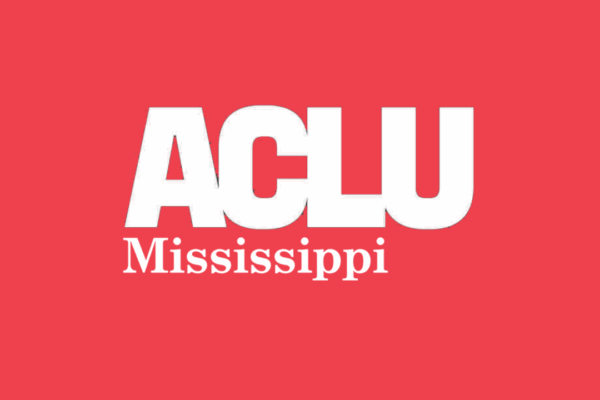FOR IMMEDIATE RELEASE
JACKSON, MS--Yesterday, grassroots organizations representing Jackson, Mississippi, residents filed an emergency petition with the Environmental Protection Agency (EPA) urging emergency action by the EPA and local and state entities to provide immediate relief and center community engagement and transparency in the process to resolve the decades-long water crisis in the capital city. The Mississippi Poor People’s Campaign (PPC-MS) and the People’s Advocacy Institute (PAI) are asking the EPA to order responsible governmental parties to ensure Jackson residents have access to safe drinking water and real-time alert systems regarding the safety of their tap water. They are also seeking, over the longer term, an equitable overhaul of the decrepit water system with a focus on community involvement in its co-design and management, in addition to calling for those who contributed to the crisis and who are responsible for fixing it to be held accountable. The petition was filed under a provision of the Safe Drinking Water Act (SDWA) to request the EPA use its emergency powers.
“What’s been missing in this process is community,” said Brooke Floyd, Co-director of the JXN People’s Assembly at the People’s Advocacy Institute. “This is about our health and safety, and these issues are too important to be decided without our participation.”
“We are absolutely committed to ensuring that our communities are heard,” said Danyelle Holmes of the Mississippi Poor People’s Campaign, an anchor organization of the Mississippi Rapid Response Coalition. “We are talking about our health, our lives, our ability to make a living. Water is life. This petition is about making sure our voices, and our needs as residents are centered in this process. It's only right.”
In August 2022, flooding shut down Jackson’s main water treatment plant, leaving thousands without safe drinking water. For the 160,000 residents of this 83 percent African-American city, this was only one episode in a multigenerational environmental injustice that has included lead contamination, hundreds of “boil water notices” due to the risk of the presence of disease-causing pathogens, and three complete shutoffs. A lack of trust in the system led most residents to stop drinking the water years ago.
Residents are increasingly concerned that their efforts for more input and transparency are being miscast by government officials. “It’s important to separate what one might perceive a community member’s or leader’s motive might be for expressing a concern, or complaint about issues of transparency, lack of community input and engagement, hiring practices, and procurement, from the need to objectively address these issues on their own merit,” said Okolo Rashid, CEO of the International Museum of Muslim Cultures and Jackson Residents for a Beloved Community, which regularly supports and organizes community around justice issues in Jackson, alongside PPC-MS and PAI as part of the Mississippi Rapid Response Coalition.
In November 2022, the Department of Justice filed a lawsuit for the EPA charging that Jackson had violated the Safe Drinking Water Act. Under an interim agreement, a third-party manager is overseeing the response to the crisis. But the People’s Advocacy Institute and the Mississippi Poor People’s Campaign say the appointee, Ted Henifin, has excluded community members from regular, institutionalized engagement; failed to consistently and transparently inform residents about the status of the water system and repairs that led to the EPA filing the SDWA suit; and contracted with non-local businesses. The EPA has also been non-responsive to community requests for increased transparency, interim water relief (including bottled water, filters, and testing kits to ensure residents have access to safe drinking water right now), and an institutionalized role for the community in the overhaul of the public water system.
PAI’s and PPC-MS’s petition – submitted on their behalf by attorneys from the Natural Resources Defense Council (NRDC), Forward Justice, the Center for Constitutional Rights, and the ACLU of Mississippi – seeks accountability by requesting additional reporting about water quality and water treatment efforts, the distribution of filters, testings kits, and bottled water, and more oversight of Mr. Henefin’s broad power over the water system, with the goal of securing community involvement and preventing corporate takeover of Jackson’s water system. The petition follows PAI’s and PPC-MS’s submission of a community statement to the EPA and the court last month that explains the community’s short- and long-term solutions and visions for the water crisis.
“Safe drinking water is a basic human right,” said Kimberly Leefatt, attorney at the Natural Resources Defense Council. “It is unacceptable that Jackson’s predominantly African-American community has had to spend years fighting for it. As the emergency petition to the EPA makes clear, the federal government must take steps to ensure the people of Jackson receive safe drinking water. Solving Jackson’s water crisis will require the EPA to listen to community leadership while enforcing the law, so that trust in the water system is repaired.”
Last year, Congress allocated more than $600 million for Jackson’s water crisis, but it is unclear how much will actually be spent on the water system, as state officials have been reported to withhold funds from the predominantly Black state capital. Accounting transparency and community participation are needed to ensure the funds are used for their intended purpose, advocates say.
Caused by decades of discriminatory neglect, the Jackson water crisis is similar to those facing other majority-Black and Latinx cities and communities around the country. Corroded and outdated water and wastewater systems are threatening the health of residents in, among other places, Alexandria, LA, Baltimore, MD, Laredo, TX, and Lowndes County, AL.
Read the emergency petition here.
For more information, visit the groups’ websites:
Stay Informed
Sign up to be the first to hear about how to take action.
By completing this form, I agree to receive occasional emails per the terms of the ACLU’s privacy statement.
By completing this form, I agree to receive occasional emails per the terms of the ACLU’s privacy statement.

